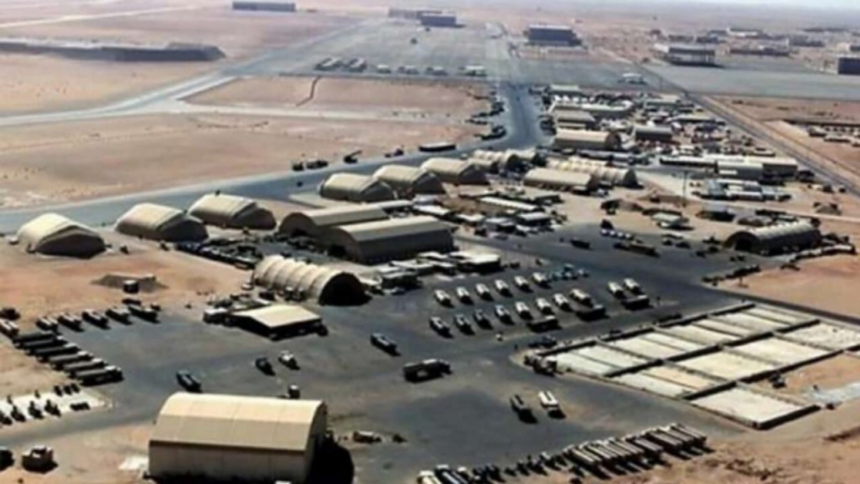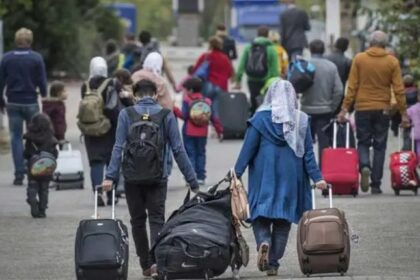RASC News Agency: In a statement that reflects deepening paranoia and growing friction between the Taliban regime and its regional neighbors, Taliban spokesperson Zabihullah Mujahid has claimed that the United States, with alleged assistance from certain military circles in Pakistan, is attempting to regain control of the Bagram Airbase, once the largest U.S. military installation in Afghanistan.
Speaking to local Afghanistani media outlets, Mujahid alleged that Washington still views Bagram as a strategic regional hub vital to its long-term security and intelligence operations in South and Central Asia. According to him, the U.S. may seek to destabilize Afghanistan indirectly by exploiting “specific military elements” within Pakistan a veiled reference to parts of Pakistan’s army or intelligence establishment.
“Bagram remains a sensitive and strategic position,” Mujahid declared. “Some circles in Pakistan, who in the past facilitated America’s military entry, might again assist them in pursuing the same agenda.”
Mujahid clarified that his remarks were not aimed at the Pakistani government or people, but rather at “a particular military faction” that, he alleged, has historically cooperated with the United States for financial and political gain.
Drawing parallels with the U.S.-led invasion of 2001, he claimed that the same networks that once enabled American military operations might now be working behind the scenes to “undermine the Islamic system” the Taliban have imposed in Afghanistan.
“In 2001, these groups helped foreign forces enter Afghanistani territory,” Mujahid said. “Now, it appears they are attempting to reopen the same path through deception.”
The Taliban spokesman insisted that Bagram Airbase is a sovereign part of Afghanistan and that the regime would “never allow” any foreign power to re-establish military control over it.
He asserted that Bagram is “non-negotiable” and warned that any attempt to reoccupy or influence it would be met with “firm resistance.”
The statement comes amid a period of sharply deteriorating relations between the Taliban government in Kabul and Islamabad.
Despite long-standing ideological and logistical ties, the two sides have increasingly exchanged accusations over border security, militant activity, and cross-border attacks.
The Taliban have repeatedly accused Pakistan of harboring members of Tehrik-e-Taliban Pakistan (TTP) a militant group ideologically aligned with, but organizationally distinct from, the Afghanistani Taliban. Islamabad, in turn, has condemned the Taliban regime for allowing TTP fighters to operate from Afghanistani soil and launch deadly assaults inside Pakistan.
Analysts say Mujahid’s recent remarks reflect the Taliban’s growing sense of isolation and attempt to deflect blame for Afghanistan’s worsening instability by projecting external threats.
“This rhetoric is part of the Taliban’s defensive narrative,” said Dr. Nadia Farouq, a regional security analyst based in London. “By accusing the U.S. and Pakistan’s military establishment, they aim to portray themselves as national defenders against foreign conspiracy a tactic that distracts from their own failures to govern or deliver stability.”
The Bagram Airbase, located just 70 kilometers north of Kabul, has long been a symbol of Afghanistan’s geopolitical importance. Once the central command post of U.S. and NATO operations, the base was abandoned during the chaotic withdrawal of American forces in August 2021.
For the Taliban, Bagram is both a trophy of victory and a psychological scar a reminder of the U.S. presence they overthrew and the vulnerability of their rule in a region where global interests still intersect.
Analysts suggest that fears of foreign infiltration often resurface among Taliban leaders, many of whom distrust both Western governments and their former patrons in Pakistan’s security apparatus.
The recent deterioration in Taliban–Pakistan relations also reflects a larger regional realignment. Pakistan’s government, facing international pressure and internal instability, has grown increasingly wary of the Taliban’s inability or unwillingness to curb militant activity along the border.
Meanwhile, the Taliban, seeking international legitimacy, have accused Pakistan of acting as a proxy for Western interests, despite Islamabad’s historic support for their movement.
Talks between the two sides, facilitated by Qatar and Turkey, have so far yielded no tangible progress, with mutual distrust overshadowing diplomatic efforts.
“The Taliban’s strategy is to frame every disagreement as foreign interference,” noted political analyst Waheed Mirza. “It is a way to maintain domestic unity through fear, not through performance.”
Observers note that the Taliban’s latest claims serve not only as a geopolitical warning but also as a domestic distraction.
Facing a collapsing economy, widespread poverty, international isolation, and growing public discontent over their repressive governance particularly the regime’s brutal restrictions on women the Taliban have increasingly resorted to nationalist rhetoric and conspiracy narratives to consolidate internal control.
By accusing the United States and Pakistan’s military of conspiring to seize Bagram, the Taliban seek to present themselves as the last bastion of Afghanistani sovereignty, even as their policies erode the very foundation of that sovereignty through oppression and isolation.
Mujahid’s allegations underscore a deeper truth: the Taliban’s hold on power is rooted in insecurity, not confidence. Their fear of Bagram’s reoccupation is less about foreign invasion and more about the ghosts of legitimacy a reminder that their rule remains contested both domestically and internationally.
As Afghanistan continues to spiral into economic and social paralysis, the Taliban’s preoccupation with imagined external threats reveals the fragility of a regime that governs through suspicion rather than stability, and through fear rather than faith.






